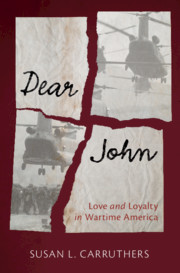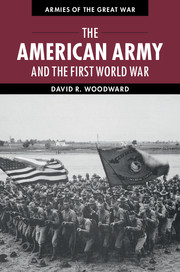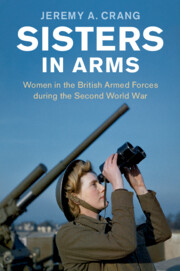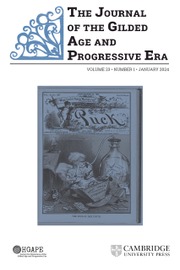Dear John
Love and Loyalty in Wartime America
Part of Military, War, and Society in Modern American History
- Author: Susan L. Carruthers, University of Warwick
- Date Published: January 2022
- availability: In stock
- format: Hardback
- isbn: 9781108830775
Hardback
Other available formats:
eBook
Looking for an inspection copy?
This title is not currently available on inspection
-
Are 'Dear John' letters lethal weapons in the hands of men at war? Many US officers, servicemen, veterans, and civilians would say yes. Drawing on personal letters, oral histories, and psychiatric reports, as well as popular music and movies, Susan L. Carruthers shows how the armed forces and civilian society have attempted to weaponize romantic love in pursuit of martial ends, from World War II to today. Yet efforts to discipline feeling have frequently failed. And women have often borne the blame. This sweeping history of emotional life in wartime explores the interplay between letter-writing and storytelling, breakups and breakdowns, and between imploded intimacy and boosted camaraderie. Incorporating vivid personal experiences in lively and engaging prose – variously tragic, comic, and everything in between – this compelling study will change the way we think about wartime relationships.
Read more- Incorporates ongoing debates into far-ranging analysis that spans a century of US war-making
- Explores wartime relationships and breakdowns from multiple perspectives – civilian and military, male and female, historical and contemporary
- Sheds new light on emotional life during wartime
- Deploys a diverse range of research, using personal letters, declassified documents, press reports, psychiatric literature, movies, and popular music
Reviews & endorsements
'Susan L. Carruthers is an eloquent storyteller. She exposes not only the poignancy of love in times of war, but also how perceptions of girlfriends and wives as 'flight risks' become powerful stimuli to male solidarity. A captivating history.' Joanna Bourke, author of War and Art: A Visual History of Modern Conflict
See more reviews'This fast-moving journey through a century of soldiers' heartbreak and rage at being dumped by their sweethearts reveals the psychological distance between the home front and the war theater, but even more tellingly illuminates the eternal war between men and women.' Nancy F. Cott, author of Fighting Words: The Brave American Journalists Who Brought the World Home between the Wars
'Whether distraught, amused, or enraged, jilted GIs have long bonded as victims of betrayal. Susan L. Carruthers's marvellously written new book not only explores the origin and evolution of the 'Dear John' letter, but illuminates the misogyny that often underlies this military brotherhood, the alleged correlation with suicide, and the impact on the writers of these infamous epistles.' Brian McAllister Linn, author of Elvis's Army: Cold War GIs and the Atomic Battlefield
'Dear John is, dare I say, a pleasure to read, in addition to being incisive regarding the gendering and biases built around the mythopoeia of the epistolary breakup. Carruthers's multidimensional interrogation of the wartime brushoff encompasses fictions, reality, sexual orientation, POWs, social media, and all manner of telling the loved one So long, see you never. This learned and relevant treatment is a unique and deeply researched addition to the literature of broken hearts.' Anthony Swofford, author of Jarhead: A Marine's Chronicle of the Gulf War and Other Battles
'… an eye-opening study of wartime romances and breakups.' Publishers Weekly
'Carruthers makes a convincing case that the Dear John letter has helped make women, not war, the culprit for love's breakdown under pressure.' Charlotte Gray, The Wall Street Journal
'Her account offers insights into a broader entanglement, involving the militarism that shores up modern nationhood; the emotional and sexual ties that sustain and can destroy men in the military; and the women on whom male soldiers have poured hatred as well as adoration.' Julia Laite, London Review of Books
'As Carruthers explains, Dear John letters can be hard to find in archives. Recipients of these devastating messages were not necessarily inspired to retain them. To the extent that any such letters remain, they are generally scattered about in various collections of personal papers, as opposed to constituting their own collection. In light of these challenges, Carruthers' research is even more impressive.' Natalie Shibley, War in History
Customer reviews
Not yet reviewed
Be the first to review
Review was not posted due to profanity
×Product details
- Date Published: January 2022
- format: Hardback
- isbn: 9781108830775
- length: 336 pages
- dimensions: 235 x 158 x 23 mm
- weight: 0.64kg
- availability: In stock
Table of Contents
Introduction: Picking up the pieces
1. The marital and the martial
2. Rules of engagement, or 'write right!'
3. Technologies of proximity
4. 'That's all she wrote': Telling Dear John stories
5. 'The modern Penelope': Aanalyzing the waiting wife
6. Emotional injury: Causes and consequences
7. Severed ties and suicide
Conclusion.
Sorry, this resource is locked
Please register or sign in to request access. If you are having problems accessing these resources please email [email protected]
Register Sign in» Proceed
You are now leaving the Cambridge University Press website. Your eBook purchase and download will be completed by our partner www.ebooks.com. Please see the permission section of the www.ebooks.com catalogue page for details of the print & copy limits on our eBooks.
Continue ×Are you sure you want to delete your account?
This cannot be undone.
Thank you for your feedback which will help us improve our service.
If you requested a response, we will make sure to get back to you shortly.
×







